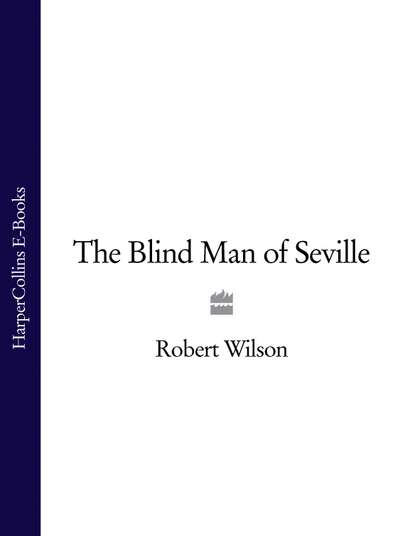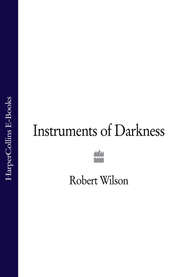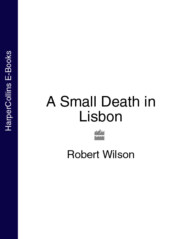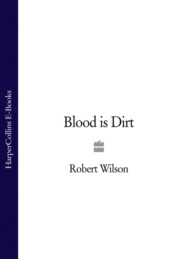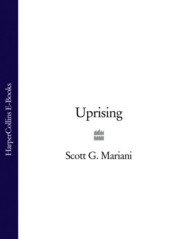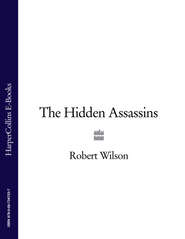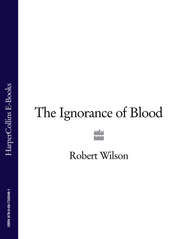По всем вопросам обращайтесь на: info@litportal.ru
(©) 2003-2024.
✖
The Blind Man of Seville
Автор
Год написания книги
2018
Настройки чтения
Размер шрифта
Высота строк
Поля
Instead of reviewing his notes and planning his next assault on the cultivated defences of Doña Consuelo Jiménez, who, he couldn’t deny it, was still his prime suspect, he found himself reaching for the sheaf of old photographs. There were some group shots, again from Tangier, in 1954 according to the dates on the back. He looked over the faces, thinking that he was trying to find his father in there until he realized that he was concentrating more on the women and was wondering if his mother, who’d died seven years after these photographs were taken, was amongst these strangers. He was fascinated at the prospect of finding a shot of her he’d never seen, in the company of people he’d never heard of, in a time before he was born. Some of the faces were too small and grainy and he decided to take them home and look at them under his magnifying glass.
He took a cigarette from the pack of Celtas, sniffed it. He hadn’t smoked for fifteen years. He’d given up when he was thirty, on the same day he’d terminated his relationship of five years with Isabel Alamo. She’d been heartbroken, not least because she’d assumed their private talk was going to be a marriage proposal. In the ghastliness of that memory he broke off the filter, picked up the Bic and lit the cigarette. It was horrible even without inhaling and he set it down on the ashtray. He leaned back in the chair as his mind shot back to another memory back in Tangier on New Year’s Eve 1963. He was standing by the stairs in his pyjamas, waist height to all the leaving guests, who were going down to the port for the firework display. Mercedes, his second mother, his father’s second wife, picked him up and took him back upstairs to bed. This smell was in her hair, Celtas; somebody must have been smoking the same brand at the party. There were still plenty Of Spaniards in Tangier in those days, even though the really good times were long over. Mercedes had put him to bed, kissed him hard, squeezed him to her bosom. He left the memory at that point. He never took it forward from there because … he just didn’t. He was interested to find that this new smell could take him back to that time. Normally he only ever thought of Mercedes when he came across Chanel No.5, her perfume of choice.
A knock at the door brought him back. Serrano and Baena stood in the corridor.
‘You were quick,’ said Falcón.
The two men shuffled in, uneasy with their boss who they assumed was being sarcastic. They’d been forty minutes.
‘Traffic,’ said Baena, which solved the problem both ways.
Falcón was mystified by the sight of the cigarette reduced to an ash snake in front of him. A glance at his watch left him stunned to find that it was past eleven o’clock and he’d achieved nothing. He checked his notes to see when Ramírez had timed the removals men’s lunch break and ordered Serrano and Baena to go out on the streets to try to find a witness who’d seen someone, probably in overalls, climbing up the lifting gear to the sixth floor of the Edificio Presidente.
Sub-Inspector Pérez called saying the maid, Dolores Oliva, had finally come round. She wouldn’t speak until she had a rosary in her hand and throughout the interview she fingered a key ring of the Virgen del Rocío. She was convinced she had come into contact with pure evil and that it might have found a way in. Falcón tapped the desk. It was always like this with Pérez. The academy and eleven years in the field had not been able to break down his need to tell a story in a report. It took eight minutes for him to reveal that Dolores Oliva had opened the door with five turns of the key.
Falcón cut Pérez off and told him to get down to Los Remedios as soon as possible to work the apartments in the block with the print-outs of the unidentified persons from the CCTV tapes. The prostitute had to be identified and found, too. He hung up and saw that there was a message for him from the Médico Forense saying that the autopsy was complete and a written report was being typed out. He thought for a moment about whether he should let Consuelo Jiménez see the body in its full horror and decided that it would be better to keep the eyelid removal as police information only. He called the Médico Forense back and asked him to make the body clean and presentable.
He arranged to pick up Consuelo Jiménez from her sister’s house in San Bernardo and went down to his car calling Fernández and telling him to make contact with Pérez to work the apartments.
It was fiercely bright outside after the darkness of the apartment and nearly warm. It was always the same around Semana Santa and the Feria, a most ambiguous time of year. Neither hot nor cold. Neither dry nor wet. Neither religious nor secular. He got into his car and threw the sheaf of old photographs on the seat. The one of Gumersinda, Raúl’s first wife, was on top. It was a formal shot and she was staring earnestly into the camera, but it was Consuelo Jiménez’s words that came to mind: ‘He totally failed to love me.’ Two bizarre thoughts clashed in his mind, squirting adrenalin into his system, which made him start the car and pull out without looking. Tyres squealed. A muffled shout of ‘Cabrón!‘ reached him.
He made a U-turn and crossed the river over the Puente del Generalísimo. The port railway tracks streamed beneath him and the cranes formed a guard of honour down to the massive Puente del V Centenario, which rose out of the urban mist. His thoughts burgeoned as he headed northeast past the Parque de María Luisa and he desperately wanted that cigarette he’d let burn to ash in Raúl Jiménez’s study. What had come into his mind were the words of his wife, Inés, whom he, too, had failed to love: ‘You have no heart, Javier Falcón,’ and this had been entangled with the sight of Gumersinda, a woman from his mother’s era, which had made him think of his blood mother, Pilar, and then his stepmother, Mercedes. All these women, immensely important to him, he now thought he’d somehow failed.
The idea was so new and peculiar it made him quite desperate to be active and unconscious.
He sat at the traffic lights, his fingers jittering over the steering wheel, muttering: ‘This is madness’ because this did not happen to him. He did not have random inexplicable thoughts. He had never been by nature a day-dreamer. He had always been calm and methodical, which characteristics could not be applied to him now. From the moment he’d seen Raúl’s terrible face there’d been something no less cataclysmic than a genetic mutation. His mind was flooding with uncomfortable memories, sweat welled up from his forehead and dampened his hands, his concentration was shot. He hadn’t even got this investigation under control. He hadn’t checked the windows and doors out on to the balcony in the Jiménez apartment. First steps. And that business with the TV, yanking the cord out of the wall and not mentioning it. It was unprofessional. It was not him.
He cruised up Calle Balbino Murrón right to the end, to a building that overlooked the soccer pitch in the Colegio de los Jesuitas. He put the photos in the glove compartment. Consuelo Jiménez came out on her own before he reached the house. A child, probably the youngest, stood in the window. She waved and the boy waved frantically back. It saddened Falcón. He saw himself in the window, left behind.
They set off, cutting across the main arterial roads going into the centre of town. She looked straight ahead, not taking much in beyond the glass.
‘Have you told the children yet?’ he asked.
‘No,’ she said. ‘I didn’t want to tell them and then leave them to go to the hospital.’
‘They must know something is wrong.’
‘They see I’m nervous. They don’t know why they are with their aunt. They keep asking me why we aren’t in the house in Heliopolis and when is Daddy going to bring the present he promised.’
‘The dog?’
‘You can be quite impressive, Inspector Jefe,’ she said. ‘You don’t have children, do you?’
‘No … ‘ he said, wanting to fill that out somehow.
They continued in silence, heading north towards La Macarena.
‘How is the investigation going?’ she asked, polite, distant.
‘It’s early days.’
‘So you only have the obvious motive to go on.’
‘Which is?’
‘Wife wants to get rid of unloving older husband, inherit his fortune and disappear with younger lover.’
‘People have killed for less.’
‘I gave you that motive. There’s no one who could have told you that Raúl Jiménez didn’t love me.’
‘What about Basilio Lucena?’
‘He only knows that Raúl was impotent and that I have physical needs.’
‘Do you know where he was last night?’
‘Ah, yes, of course. It would be the lover who would do the deed,’ she said. ‘You’ll meet Basilio and then you must tell me what you think he’s capable of.’
They passed the Basilica de La Macarena and a few minutes later pulled up by an austere grey building on Avenida Sánchez Pizjuan that housed the Instituto Anatómico Forense. A crowd of people were gathered outside the doors. Falcón parked up inside the hospital barrier. Consuelo Jiménez put on a pair of sunglasses. The crowd were on them as soon as they got out of the car, Dictaphones pointing. Loose words blasted out from the cacophony and cut like shrapnel — ‘marido’, ‘asesinado’, ‘brutalmente’. Falcón took her by the arm and pushed past them, got her through the door and slammed it behind him.
He walked her through the corridors to the office of the Médico Forense, who took them to the viewing room. The official pulled back the curtain and, beyond the glass panel, lit from above, lay Raúl Jiménez under a sheet that was pulled down over his chest. Two candles burned by his head. His eyes, clean of blood, stared up at the ceiling. There was nothing in them. The back of his head, previously matted with gore, had been washed clean. The nose had been miraculously reattached and the scarring from the flex on his cheeks had gone. The old wound to his right pectoral, seen in the photograph, now looked like the worst thing his body had suffered. Consuelo Jiménez formally identified the body. The curtain was closed. Falcón asked her to wait while he had a short discussion with the Médico Forense, who told him that Raúl Jiménez had died at three in the morning. He had suffered a brain haemorrhage and heart failure. There was an extremely high level of Viagra in his blood. It was the doctor’s conclusion that the increased blood pressure and high degree of distress combined with the clogged condition of the victim’s arteries had caused Raúl Jiménez to more or less internally burst. He gave Falcón his official typed report.
They ran the gauntlet to the car and rather than go back through the barrier, which was blocked by the journalists, he headed through the grounds of the faculty and out past the main hospital building on to Calle de San Juan de Ribera.
‘They should have closed his eyes,’ said Consuelo Jiménez. ‘You cannot be at peace with your eyes still open, even if they don’t see anything.’
‘They couldn’t close his eyes,’ he said as the traffic lights released them to turn left on to Calle Muñoz León.
He drove past the old city walls and found a parking space in the busy street. Sra Jiménez clung to the roof grip, her knuckles whitening, her face already beginning to shrink from the words that she knew were coming her way. The worst of his career.
He told her how it was, with no soft focus, giving his own appalled version. Yes, it had been the worst of his career. There were scenes he’d had to ‘process’ which perhaps sounded worse — walking into an apartment in a high-rise block in an urbanización on the outskirts of Madrid, four dead in the sitting room, blood up the walls, two dead in the kitchen, needles, syringes, tinfoil floating on gore and, in the bedroom, a child whimpering on a soiled cot. But that was all expected horror in a culture of brutality. The torture of Raúl Jiménez was something he could not be objective about and not just because he was sensitive about eyes, which were so important to his work. It was how the killer’s punishment of his victim had worked on his own imagination. It terrified him, the notion of the sheer relentlessness of reality, the lack of visual respite. As Sra Jiménez had noted, not even in death could he be seen to enjoy the big sleep but had to lie in eternal, wide-eyed horror at man’s capacity for evil.
Sra Jiménez had started crying. Really crying. This was no dabbing at the mascara but a bawling, retching, snot-streaked breakdown. Javier Falcón understood the cruelty of police work. He was not the man to comfort this woman. It was he who had put the images in her head. His job, the point of his job at this moment, was to observe not just the veracity of the emotional display but also to perceive the opening, the crack in the carapace where he would jam in his lever. It had been his conscious tactic to get her in a car, in an enclosed bubble in a busy street with nowhere to go, while an indifferent world crashed by, oblivious to the enormity.
‘You were in the Hotel Colón last night?’ he said and she nodded. ‘Were you alone after your children had gone to bed?’
She shook her head.
‘Was Basilio Lucena with you last night?’
‘Yes.’
‘All night?’
‘No.’
‘What time did he leave?’





